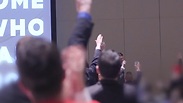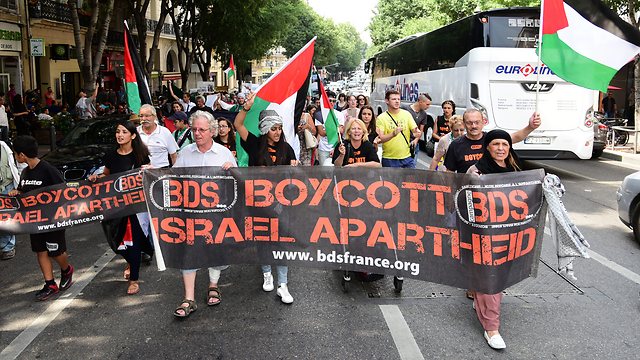
2.6 million tweets of hate
Op-ed: Different political changes in 2016 served as a catalyst for the rise of new and renewed anti-Semitism. Particularly concerning is the case of the United States, where the anti-Semitic discourse has become acceptable and ‘normal,' says the director of the ADL in Israel.
The fiery presidential election campaign was a fertile ground for the outburst of anti-Semitic manifestations. One of the most inflamed arenas was social media, and the situation was particularly serious on Twitter. A report released by the Anti-Defamation League monitored during the election campaign about 2.6 million anti-Semitic tweets. Of these, 19.253 tweets were directed specifically against Jewish journalists who had criticized Donald Trump. The figures show that the anti-Semitic manifestations were influenced by the rhetoric in the election campaign.

The problem is not just the existence of the discourse, but its products, the main one being the fact that anti-Semitic discourse has become acceptable and “normal.” The source of the anti-Semitic discourse in this case was mostly the Alternative Right circles, a group of radicals supporting white supremacy. The days after the elections were also extremely charged, bringing to the center of the stage movements and phenomena we had not been familiar with in the US.
As the Alternative Right movements grow stronger, new phenomena have been seen in the US, like the gathering of activists of a radical right movement in which participants performed a Nazi salute and chanted “Hail Trump,” vandalism against Jewish symbols across the country, anti-Semitic graffiti, and more. In Arizona, extreme right-wing activists turned a menorah in a family’s yard into a swastika. In the past month, many Jewish institutions have received bomb threats.
But problematic positions don't exist just on one side of the political map. One of the candidates for Head of the Democratic National Committee was Keith Ellison, a politician of Muslim origin who had made some disturbing comments on Israel, according to a recently reveiled recording in which he alluded to Jewish control of the US administration.
Left-wing movements which hold anti-Semitic views do things different and with different tools, but the message is in many cases anti-Semitic. The Anti-Defamation League asserts that a different attitude towards Israel and judging Israel by different standards from the rest of the world, as well as undermining its existence as a Jewish state, is anti-Semitism.
The same applies to the BDS movement, which calls for boycotting Israel and imposing sanctions on Israel in different areas, academic boycotts of Israeli institutions and academics, financial boycott attempts on the Israeli produce and industry, attacks and harassment of Jewish students on campuses across the US. These are all manifestations of anti-Semitism which excludes Israel and undermine its right to exist.
For the State of Israel and Jews around the world, the challenge of fighting anti-Semitism did not reach its end in the past year. On the contrary. It was a year which sowed fear and concern even among Jewish communities that felt safe and protected in the US. Let’s hope that President Trump and the leaders of the free world adopt the war on anti-Semitism as a battle which is not just for the Jewish community, but a moral battle for a free and democratic society in which there is no room for such phenomena of hate.
Carol Nuriel is the executive director of the Anti-Defamation League’s office in Israel.










